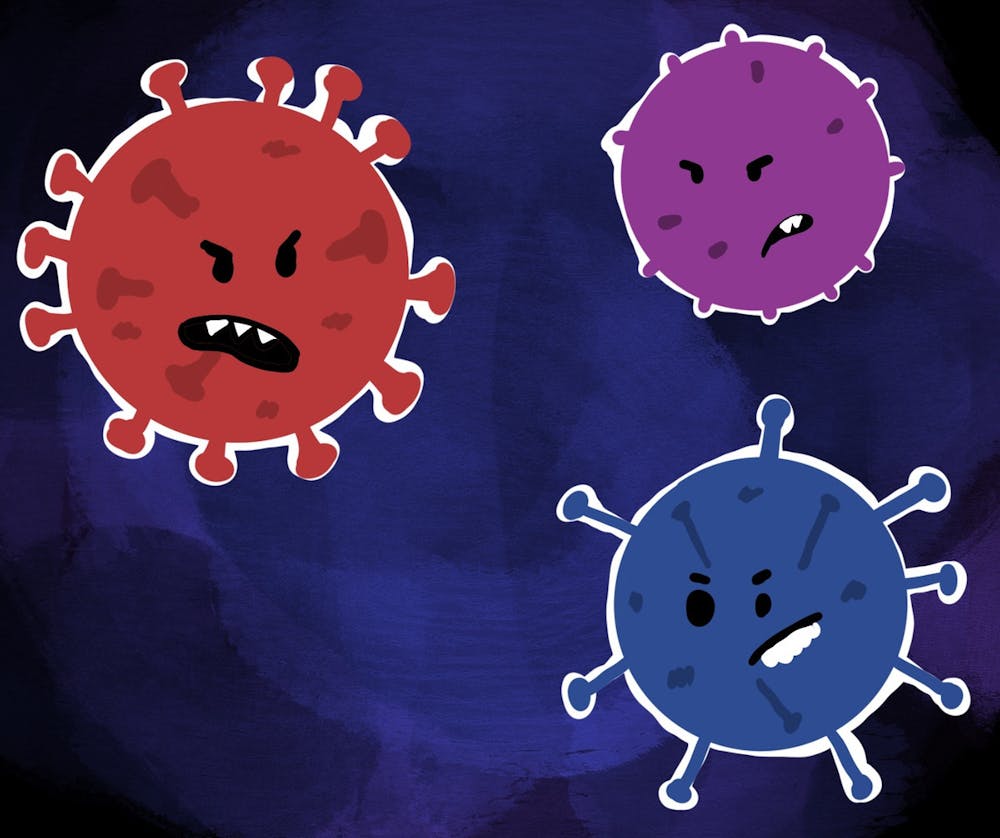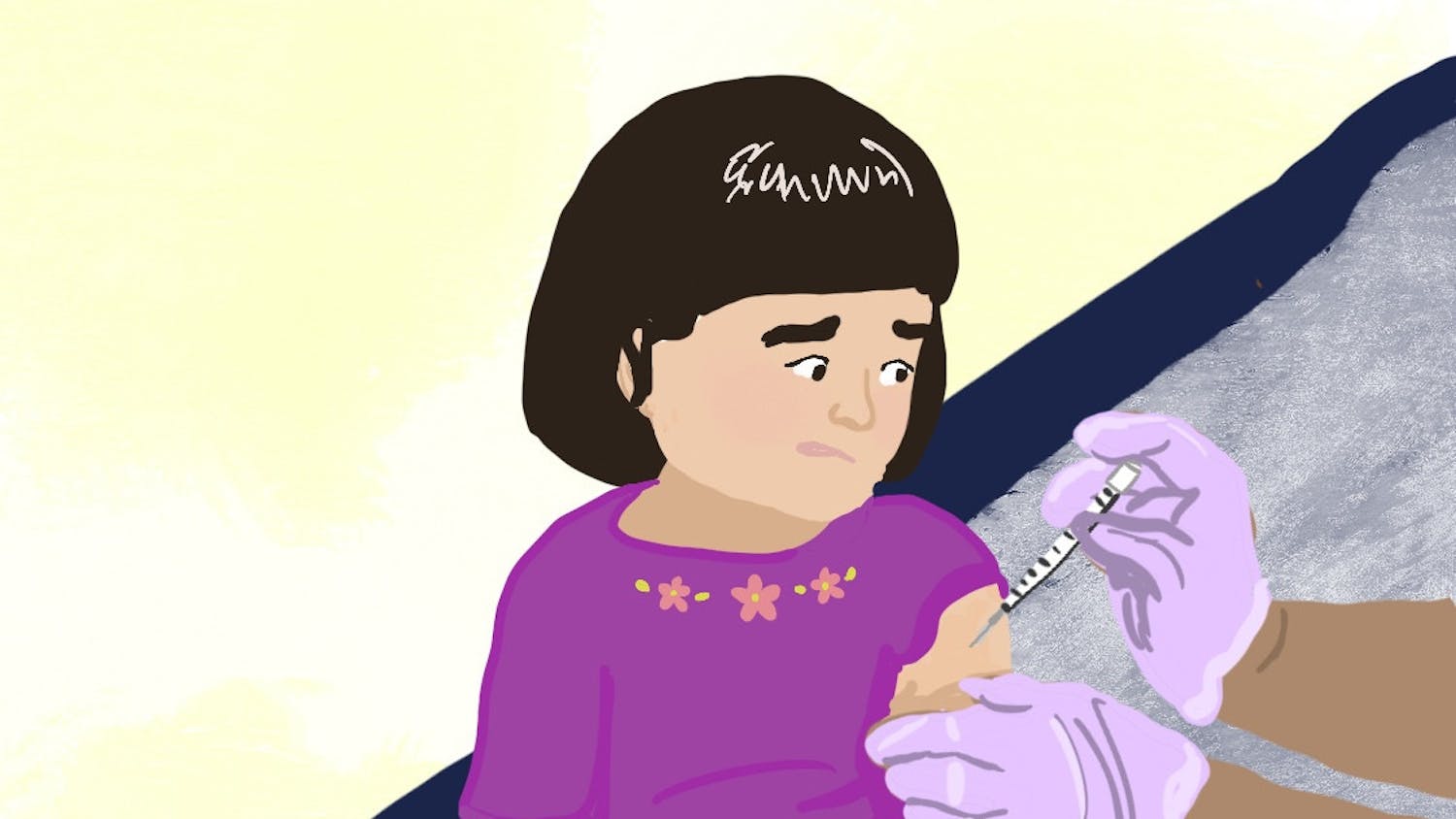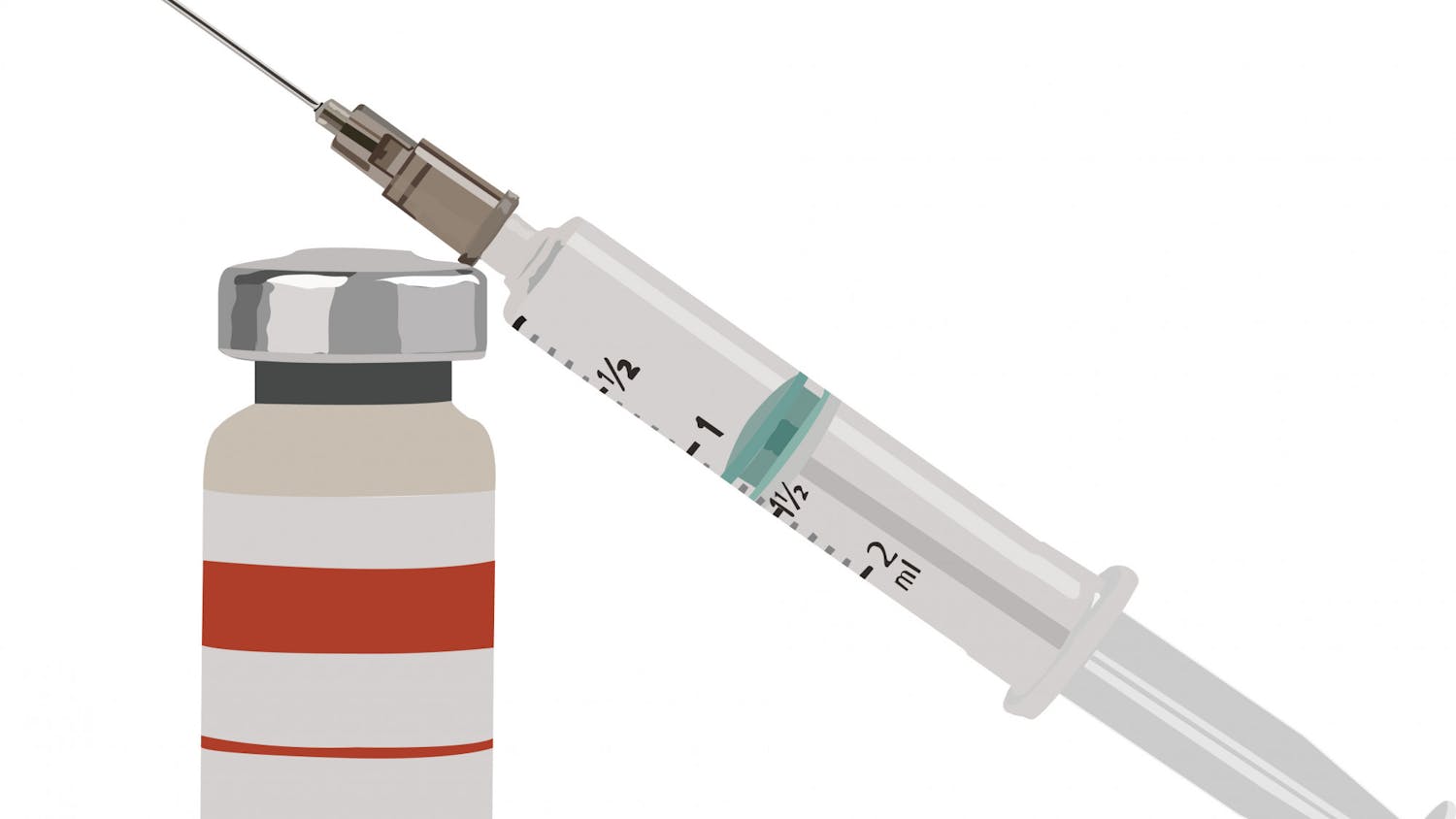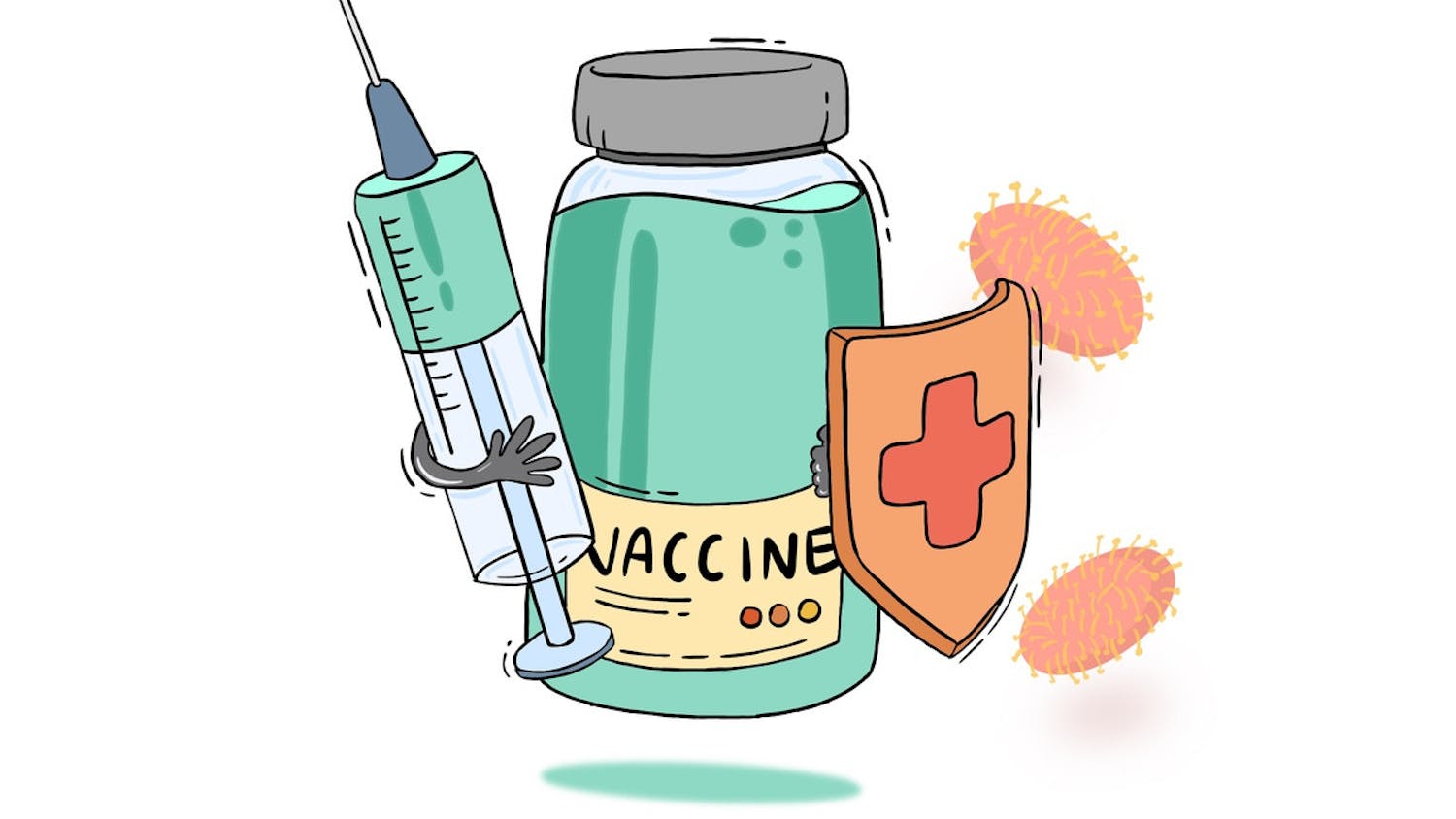After years of dealing with the spread of a contagious and dangerous virus, Rhode Island is now facing its next challenge: three viruses at once.
Respiratory viruses influenza and COVID-19 are well known, but Respiratory Syncytial Virus is less discussed. Elevated cases of RSV are adding burden to hospitals in the state already grappling with COVID-19 and the flu, creating what some have called a “tripledemic.”
RSV, described by the Centers for Disease Control and Prevention as a “common respiratory virus that usually causes mild, cold-like symptoms,” affects all age groups. Infants, young children and older adults are at highest risk for severe RSV infection.
Hospitalizations for RSV are higher and have begun to rise earlier than in previous years, leading to hospital bed shortages in Rhode Island and across the country.
“What we’re seeing currently is that as a result of some of our COVID mitigation approaches — masking, social distancing, improved ventilation and just general isolation … — a lot of different respiratory viruses decreased over the last couple years,” said Philip Chan, consultant medical director for the Rhode Island Department of Health and associate professor of medicine and behavioral and social sciences. “So what we’re seeing and experiencing now is a resurgence in some of these viruses, particularly RSV and the flu.”
RSV is also affecting a broader age group than in the past, possibly due to lack of immunity from the past two years of COVID-19 prevention efforts. “Typically it’s thought of as something that affects infants and children under age five,” said Amy Nunn, professor of medicine and behavioral and social sciences. “All of a sudden it’s impacting kids a little older than that but also the elderly.”
Although most infected people recover within one to two weeks, RSV is the most common cause of pneumonia and bronchiolitis in children less than a year old. Each year the virus causes 58,000 to 80,000 hospitalizations among children younger than five, 60,000 to 120,000 hospitalizations among adults 65 and older, approximately 100 to 300 deaths of children under five and 6,000 to 10,000 deaths of adults 65 and older, according to the CDC.
Hospitalizations peaked in Rhode Island in early November, with Hasbro Children’s Hospital — the only children’s hospital in the state — experiencing severe crowding. Hasbro went beyond full capacity with additional families in the waiting room, NBC News reported.
Although hospitalizations are now down from their peak, Chan said that every hospital in Rhode Island is still “incredibly busy.”
Nunn noted that many public health experts agree the resurgence of viruses is a result of the lifting of COVID-19 restrictions, but emphasized that it is just a theory. “The truth is we don’t really know, epidemiologically, what’s happening,” Nunn said. “It might also be that the strains are more infectious, or people are just getting sicker, but it seems like both of those things are happening.”
“The most effective mitigation measures are vaccination,” Nunn said. But because there is no vaccine or effective treatment for RSV, “prevention is our best treatment,” Nunn said.
Nunn added that overburdened hospital systems are a signal that more public health mitigation measures are necessary. “When health systems begin to buckle, then we have major public health problems because we want to be able to take care of the sickest people,” she said.
But Nunn said that mask mandates and other measures implemented during the COVID-19 pandemic “might not be the most practical solution at this point” due to public fatigue.
“We don’t want to push mitigation measures so much that we turn people off,” Nunn said. “We have to be thoughtful about our messaging because I don’t want people to start to tune us out.”
“At some point, if people are tuned out, they may not listen to you when they really need to,” she added.
Associate Vice President for Campus Life and Executive Director of Health and Wellness Vanessa Britto MSc’96 noted that although University public health measures have been relaxed, the infrastructure the University built during the COVID-19 pandemic is still in place.
“We still are doing many of the things behind the scenes that we were doing, even at the height of the pandemic,” Britto explained.
“For many, many years we’ve had flu vaccine clinics, we’ve developed systems to support students who were ill and couldn’t be in the classroom and mechanisms for communication to deans and faculty, et cetera,” Britto said. “And so a lot of those lessons we were able to apply and scale up — as well as expand — when we were faced with issues around the pandemic. We had to pivot and use them in a different kind of way, but we continue to use” them.
Although Britto noted that RSV is “much more strident in the younger pediatric population,” she encouraged students to follow basic prevention measures including washing their hands, covering their mouths when they cough and staying home when ill.
Britto said that there is one more flu and COVID-19 booster clinic this semester on Dec. 15 from 10 a.m. to 4 p.m. in the Multipurpose Room of the Health and Wellness Center. Students can walk in to receive flu shots and register for an appointment to receive a COVID-19 booster.
Britto does not expect the University to adopt a mask mandate, but she added that “we certainly want people to understand how important masking can be, and we certainly want people to feel encouraged to use that.”
“We all have personal responsibility that we should take as part of a community,” Britto said. “That’s true whether you’re here at Brown or at home or wherever you are. That’s not something that can always be mandated.”





